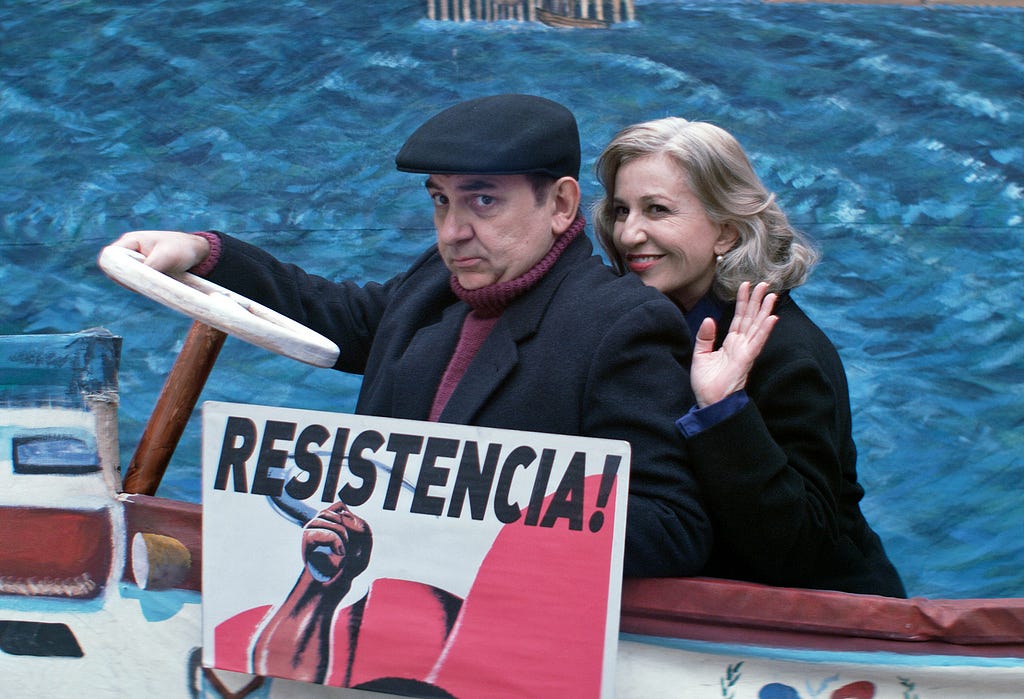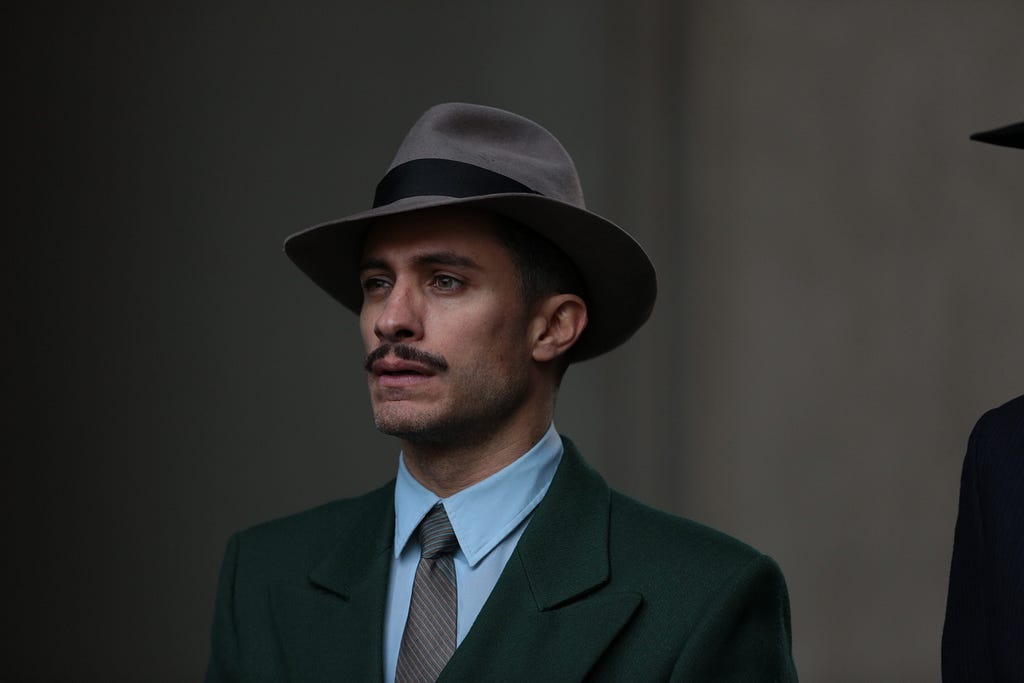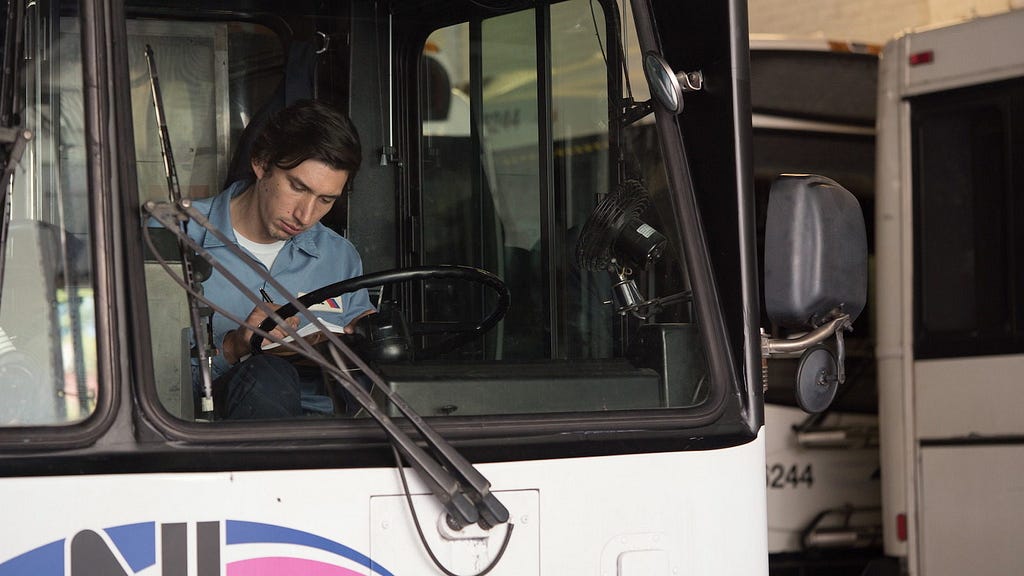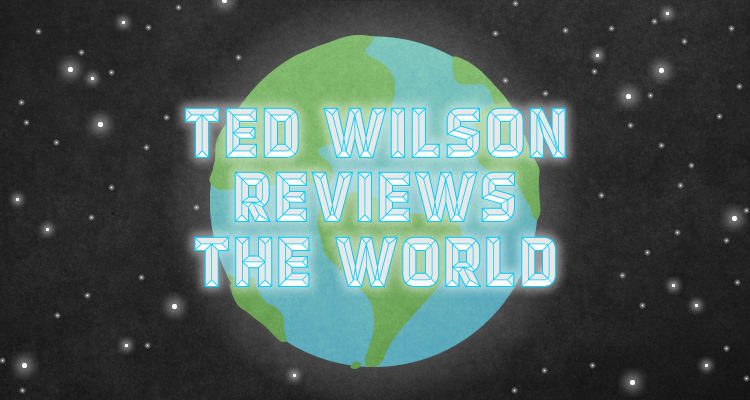Books & Culture
Neruda & Paterson: Notes on the Contemporary Poetic Film
Two recent films put poets center screen

Pablo Larraín’s Neruda and Jim Jarmusch’s Paterson are both films about poetry. This much is obvious from reading a description of their plots. The former follows the famed Chilean poet as he becomes embroiled in his country’s muddled politics, while the latter centers on an amateur poet living and working in New Jersey. But Larraín and Jarmusch have gone further, turning each of their films into a poetic portrait of its subject, ones which not only give access to the inner lives of these creative individuals, but that also breathe poetry itself. Both of them are, in the most literal sense, poetic films.
While describing them as such will surely call to mind a work of experimental non-narrative or something from Terrence Malick’s filmography, Neruda and Paterson take their cues not from the lyric, but from the modernist moment which they go to great lengths to evoke. In his neo-noir ode to Pablo Neruda, for example, Larraín opts to introduce us to the poet in a bathroom. Our first encounter with him is not as the more familiar and beloved romantic writer whose verses have delighted readers over the years, but as a senator, butting heads with his colleagues over his communist and anti-American views. As played by Luis Gnecco, Neruda seems to delight in these petty confrontations, seeing them as yet another excuse to voice his concerns about the postwar state of his country, and a chance to flex his wit against the stuffy politicians who mock and fear him in equal measure.
That he puts down opponents with gusto after peeing and washing his hands in a communal restroom in a government building is an almost incidental detail, but it frames the Chilean poet as someone tied to his body and — by extension — to the country’s body politic. By the time we see him regaling a group of partygoers at his estate, with a booming declamation of his most famous poem (“Puedo escribir los versos más tristes esta noche…”/ “Tonight I can write the saddest lines…”), and the voiceover narration informs us that all eyes and all lips are on him (“They want to kiss him. Sleep with him,” we are told), it becomes apparent why this big-bellied political and poetic provocateur is such an enduring icon, and why Larraín’s film has rightly been described as an anti-biopic.

Where most other films bearing such an iconic name might tread carefully in portraying its protagonist’s self-aggrandizing personality and prickly politics, at the risk of tarnishing their lustrous legacy, Neruda instead adopts a darkly comic tone, signaling that it doesn’t take itself too seriously — the better, perhaps, to embody a Nerudian sensibility. This is nowhere more evident than in its choice of narrator. That job goes to the character Oscar Peluchonneau (played by Gael García Bernal), a policeman who — with a dashing smirk and a dapper fedora — enters the film to assist in finding Neruda, after the poet and senator has gone into hiding. “This is where I come in,” he informs us in voiceover, as we watch him enter a government building. His plainspokenness soon gives way to more playful and literate turns of phrase: “I come from the blank page. I come for my black ink. This is where the cop enters — full of life, chest filled with air.”

It’s Peluchonneau who serves as our verbose guide throughout the film. With every near-miss encounter he has with Neruda (who rejoices in being mythified as an elusive and wanted man-on-the-run), Peluchonneau is presented as a character to be mocked, a bumbling Inspector Clouseau-like figure, standing in for the hollowness of the political authority Neruda and his ilk are fighting against. He may also be, as the film posits towards the end, entirely a figment of Neruda’s own imagination.
If Neruda feels like a refraction of the Chilean poet’s sensibility filtered through a Borgesian labyrinth of a plot, Jarmusch’s Paterson, on the other hand, is as clean and straightforward as the poetry of its fictional namesake. Paterson’s premise, which sounds rather precious when distilled, concerns a bus driver named Paterson (played by Adam Driver) who lives and works in his hometown of Paterson, New Jersey. Aware of the poetic history this setting carries, Jarmusch has crafted a film which evokes the modernist sensibility of William Carlos Williams (who wrote a five-book epic poem on the town) and Allen Ginsberg (who grew up there), among others. In the film’s eyes, Driver’s daydreaming bus operator is their latest heir. Here are the opening lines of the first poem by him (“Love Poem”) that we’re made privy to:
We have plenty of matches in our house
We keep them on hand always.
Currently our favorite brand is Ohio Blue Tip
Though we used to prefer Diamond brand.
Paterson’s poetry, like that of his idols (which include Frank O’Hara, as evinced by the copy of Lunch Poems he keeps on hand), registers the everydayness of his life, a fact which the film in its own construction seems keen to highlight. Take how Jarmusch stages Paterson coming up with his Ohio Blue Tip matches poem. Following the amateur poet catching sight of the matchbox in his kitchen, we see him as he walks to work, lost in internal reflection, the lines of the poem slowly coming to him. Driver meanwhile offers a voiceover, which gives us a glimpse into the character’s artistic process. In these moments — which are repeated several times throughout the film — his voice is always tentative, as if he’s coming up with the lines on the spot, carefully weighing the impact of each word on the line as a whole. Thus we hear him take unexpected pauses, sounding out individual words as he writes them down in his notebook.
In depicting these moments of inspiration the film eschews its own naturalism, rushing instead to echo the feeling of Paterson’s poetic inspiration. When he sits down on a bench to finish his Blue Tip poem, for example, Jarmusch overlays images in the present of the nearby waterfall with a close-up from the past of the box of matches, as if seeing it through his mind’s eye as Paterson writes about it. And when the poet’s own handwriting etches itself onto the screen, the frame completely merges the poetry being written with the moment that inspired it.
The film itself obeys the very artistic tenets that Paterson’s poetry evidently subscribes to. Jarmusch segments Paterson’s structure into eight stanza-like parts, each one following a day in the protagonist’s life. These adhere to the rigidity of his daily routine: here he is waking up next to his girlfriend (Golshifteh Farahani) every morning, looking at his watch. Here he is jotting down verses while on his bus, before exchanging pleasantries with his supervisor. Here he is walking his dog late at night and stopping at a local bar for a single beer. Paterson’s script gives its storytelling a recursive rhythm, making the slight variations in the daily routine all the more momentous, like a landscape just waiting to be mined for inspiration.

It’s not often that poetry takes center stage in a film; even less so that it blends effortlessly with a film’s formal presentation. Perhaps what makes these two modern takes on artistic inspiration so refreshing is their conviction that poetry is intimately tied to the mundanity of lived experience, specifically that of working people. It is both an unassuming proposition, and one which nevertheless feels, in its way, rather radical.
Hecho En Venezuela: The Private Poetics of Narrative, Memory, and Lies







